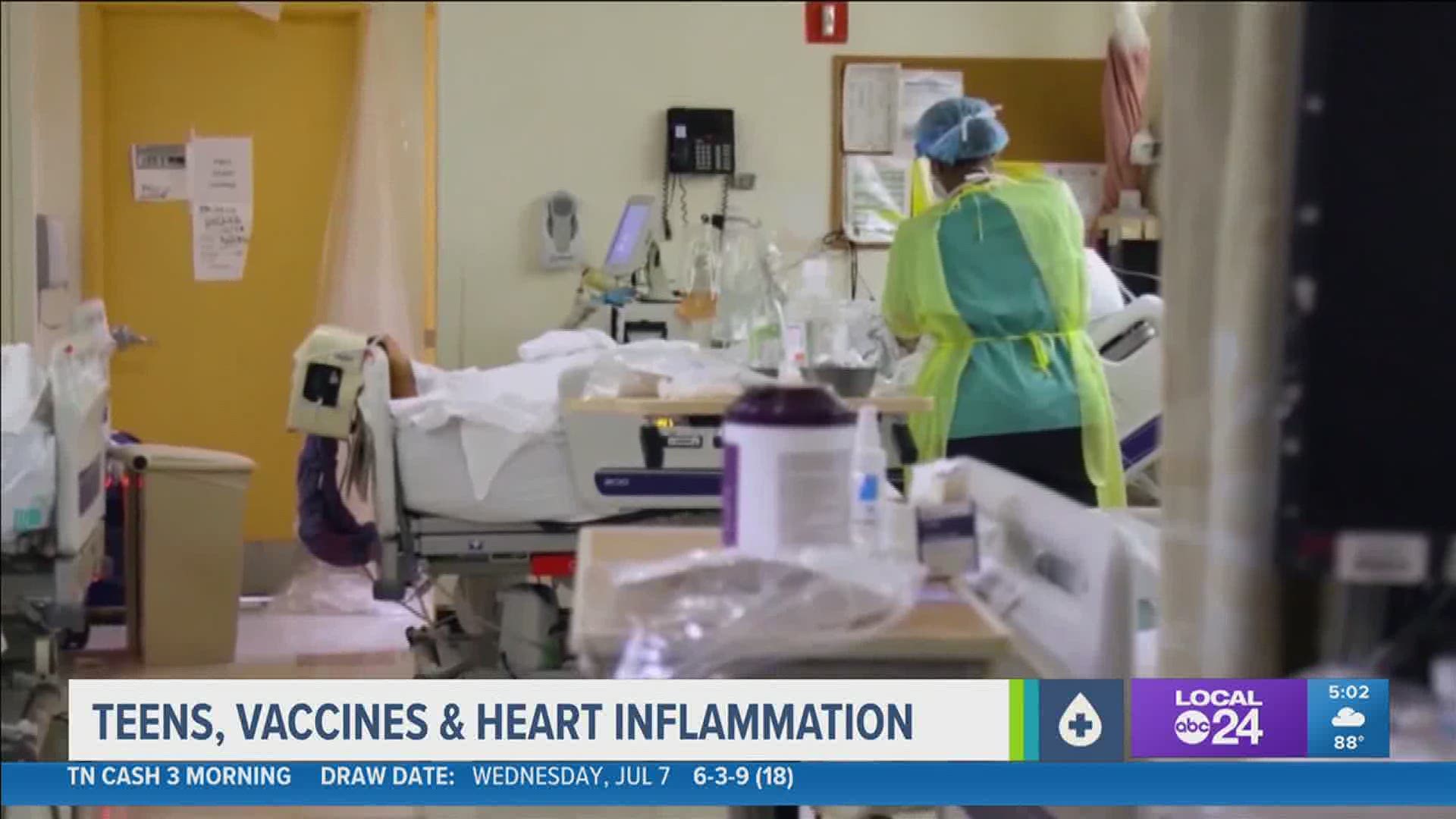MEMPHIS, Tenn. — There has been a lot of talk about the COVID vaccine causing heart inflammation in younger populations.
While that is a side effect, Local 24 News Reporter, Brittani Moncrease, digs deeper into how big of a concern it actually is and what's being done to respond to it.
You've heard it from doctors.
Now, you're hearing it from our Nextdoor neighbor, 18-year-old John Tilmon.
“The benefits of getting the vaccine outweigh the risks,” said Tilmon, a Bartlett Nextdoor neighbor.
Tilmon speaks from experience.
He spent the last year, his senior year of high school, at home.
“It’s definitely been very different. With everything changing and nothing really feeling normal, the vaccine was like…It felt like a solution. I was really ready to get back to normal and everything. The vaccine really seemed like a way to do that,” said Tilmon.
He got it only to find out months later that the vaccine can cause myocarditis or heart inflammation.
“I was kind of like, ‘Oh okay. So, I can get all this stuff,’” said Tilmon.
Luckily, Tilmon had no side effects at all.
This got Local 24 thinking. How common is heart inflammation from the vaccine?
We turned to LeBonheur's Associate Chief of Pediatric Cardiology, Dr. Jason Johnson.
“It’s not uncommon for young children or teenagers or young adults to have a more robust response to any of the vaccines that are given. This appears to be the same kind of experience with the Covid-19 vaccine,” said Dr. Johnson.
Most cases are mild and the diagnoses are rare.
“There have been 12-million second doses given to the age group between 16 and 24 years of age. There’s been 275 reported cases of myocardia inflammation. That’s 0.02 percent,” said Dr. Johnson. “We’re really vaccinating a lot of people very quickly. That’s why we’re seeing these case reports. It seems like so many are being reported, but the truth is it’s really quite rare.”
Those affected may have chest pain, shortness of breath, or change in heartbeat.
Dr. Johnson said while the CDC has been monitoring symptoms up to 30 days, it's an extra step of precaution.
“If it is associated with the vaccine, it would be within the first few days after the vaccine has been administered,” said Dr. Johnson.
Still, there is always that little concern in the back of Tilmon's mind.
“You see the commercials that say you can get compensated for blah blah blah. I hope that’s not us in a few years,” said Tilmon. “I’m just hoping we can get back to how we were pre-pandemic and if that means everyone getting vaccine, then yes, I hope for that."
Dr. Johnson said because younger people have more active immune systems, it is possible that if we were to need a booster shot going forward, youth may not need it at all.

